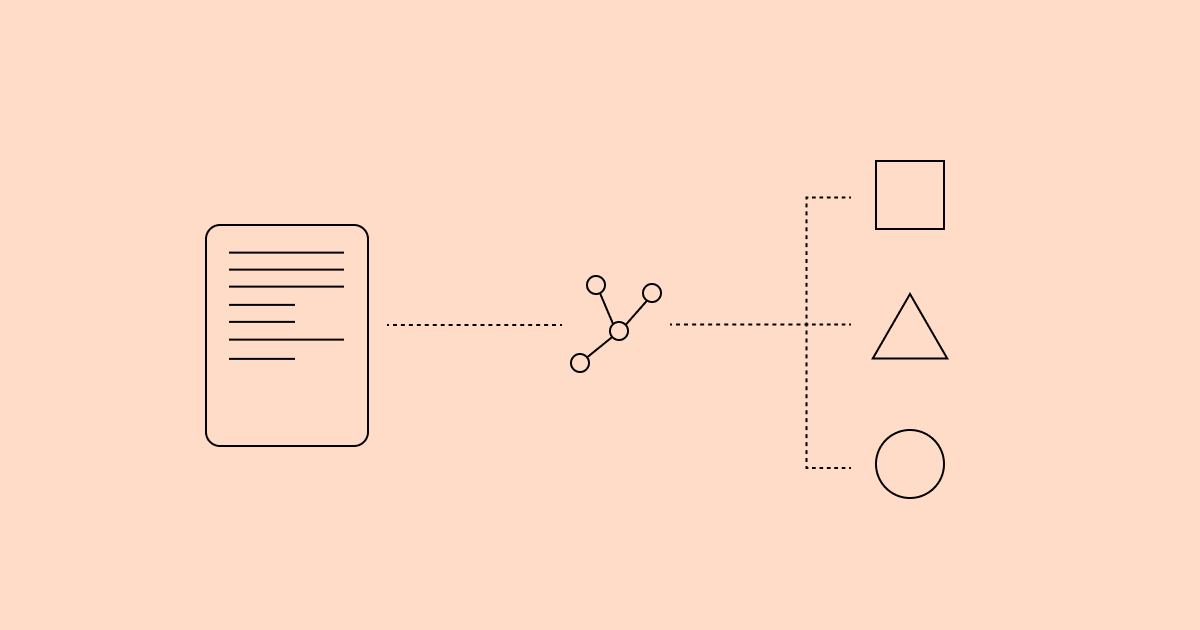Working on text classification? Use a task-specific LLM.
Here is why you should stop using general-purpose LLMs for narrow tasks like text classification.
September 15, 2025

General-purpose LLMs are trained to be versatile across as wide a range of tasks as possible. They handle themselves well in scenarios extending from code generation to creative writing. While this is very quickly turning them into an irreplaceable tool for many, it also means that they come with two main limitations:
- Cost: as their very name suggests, LLMs are extremely large. This means that they are expensive to run, and their use requires either specialized hardware, or access to a paid third-party API.
- Non-specificity: because they are trained to be general-purpose, LLMs are not particularly good at tasks that require domain knowledge, or being trained on a specific dataset.
In practice, this means that, when working on many narrow, well-defined tasks, general-purpose LLMs are often not just overkill, but also underperforming.
Text classification
Text classification is a prime example of this. While their formulation and objective are straightforward, many text classification tasks such as topic categorization, intent classification or safety filtering require understanding of the specific domain they are applied to, which LLMs can only obtain through fine-tuning on a relevant dataset.
Think, for instance, of a safety filtering (or guardrailing) task, where the goal is to flag text that contains unwanted content as unsafe. Since the definition of unwanted content really depends on the user's requirements, the only way to get a general-purpose LLM to perform well on this task is through thorough and meticulous prompt engineering. Even then, the results are often subpar, and the cost of running a general-purpose LLM for this relatively simple task is non-trivial (especially at scale).
The same applies to a number of other text classification tasks, such as intent classification, where the LLM needs to be provided with a list of possible intents and examples for each, slot filling, where the LLM needs to be told what slots to fill and how, and so on.
Task-specific LLMs
Task-specific LLMs are smaller, more focused LLMs that are trained to perform very well on a specific task, and not necessarily on anything else. Due to their smaller size, they are much cheaper to run than general-purpose LLMs, and they can be deployed on more modest hardware.
More importantly, task-specific LLMs are trained on datasets that are relevant to the task at hand. This means that they can leverage domain knowledge and perform much better than general-purpose LLMs on narrow tasks. For instance, a task-specific LLM for safety filtering would be trained on a dataset of safe and unsafe messages, as per the user's definition of safety, and would learn to identify patterns and features that are indicative of unwanted content.
How Tanaos can help
Our Artifex Python library provides a simple and efficient way to create and use small-sized, task-specific LLMs for text classification tasks. Most importantly, Artifex allows you to create task-specific LLMs without the need for any training data. You simply describe how the model should behave, and it will be trained on synthetic data generated for that purpose.
The models created with Artifex are so lightweight that they can run locally or on small servers without a GPU, offloading simple tasks and reducing reliance on third-party LLM APIs.
Give it a try
Artifex is free and open-source. Check it out on GitHub!
See Artifex on GitHub